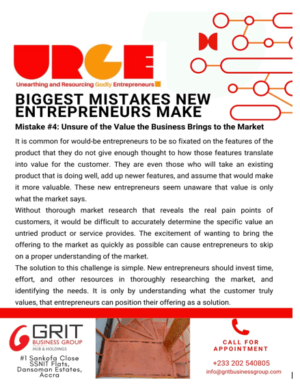By J. N. Halm
….engaging customer service employees
The importance of human resources to the fortunes of an organisation cannot be overemphasised. Getting the right people can provide an organisation with a competitive advantage that could be the difference between leading the market and struggling to survive. One way the right people give a business a huge advantage in the market is in how customers are served.
The truth is that people are so unique in the way they act and respond to issues and events that it is almost impossible to replicate another human. In other words, if a business has amazing employees in customer-facing roles, that would become an almost unbeatable advantage for that particular business.
Customer-handling employees are a special breed. As the first line of attack of the business, they can make or break a business. Whatever promise an organisation makes to its customers must be fulfilled by, and through, its customer contact employees.
The satisfaction or otherwise of the organisations’ customers is in the hands of these individuals. Their position at the front of the organisation and as the interface between the business and its customers means that customer-facing employees end up becoming the brand carriers of the organisation. In short, customer-handling professionals can truly affect the bottom line of the business.
The work of the front-line employee is so versatile, so demanding and so complex that it would take a very engaged individual to excel at the frontline. This demand has become even more pressing as competition increases and technology becomes more and more advanced.
To add to this, today’s customers have also become a lot more demanding. Having the benefit of ready information at their fingertips, customers of today know their options and would not hesitate to exercise those options, if they feel they are not being treated well.
There is one major difference between front-line employees and those behind the scenes. Those at the front are expected to manage their emotions, accurately read the emotions of customers, and then choose the most constructive response in given conditions. This is something employees hardly have to deal with.
Another reason why customer-engaging professionals are of such importance in the grand scheme of things is that, by being the interface between the organisation and its customers, they get to receive all the concerns and suggestions of customers.
When customer service employees are trained to act as “research and development consultants”, they can help in the innovation attempts of the business. One customer complaint, one tiny suggestion, is all that it might take for the business to unveil an industry-changing product or service.
With all of the intricacies of the frontline job, one factor that plays a key role in the performance of all employees is their engagement levels. Defined as the strength of the mental and emotional connection employees feel toward the employer they work for, their team, and their work, employee engagement is a big deal.
Organisational psychologist, William Kahn, the so-called father of employee engagement, defined employee engagement as “the degree to which individuals choose to invest themselves physically, cognitively and emotionally in performing their work roles”.
Engagement is a measure of how emotionally invested employees are in their work and the organization’s goals. Thus, it is to be expected that the more engaged the employee, the better the performance of the one. Businesses whose employees tend to be more engaged on the job are therefore expected to have a big advantage in the market.
A combination of the unique attributes of individuals together with their levels of engagement makes for a unique proposition for any business. When these individuals are those whose job it is to serve customers, then the potential for the company to dominate the market becomes high.
Due to their importance, customer service employees who are also engaged are a blessing. The last thing any business wants is to staff its frontline with individuals who are not engaged on the job.
Disengaged customer-facing employees can be a real challenge for the business. They tend to be apathetic and disinterested in the job. Customers tend to notice the behaviour of these individuals and it affects the repurchase decisions of these customers. It is therefore important for every organisation to know what makes and keeps employees engaged.
It is a known fact that customer engagement is not uniform across the board. There are always those employees who go to great lengths to serve customers. Clearly, employees who end up being more engaged on the job are self-motivated. There is something they possess that other less engaged or disengaged employees do not have.
Among the studies that have tried to find out what causes the difference in engagement levels between employees of the same profile and training is one whose results were published online in the November 2017 edition of the Academy of Management journal. The study was titled “Words That Make Customer Contact Employees Tick: A Grounded Study.”
One factor that has been found to determine the level of engagement of employees is role meaningfulness. When one’s job role gives one a sense of purpose and fulfilment and creates a sense of accomplishment, impact, and overall well-being—that is meaningfulness. People want to come to work not just to earn a salary. People want to feel like they are contributing to a bigger cause. It is therefore imperative that organisations ensure that they help employees find meaning in the work they do.
However, meaningfulness is a matter of personal perception. There was a study that showed that the same jobs that were listed as meaningful by some employees were also listed as meaningless by another group. This explains why different individuals tend to be engaged at different levels on the same job.
This is where the problem arises. When a customer comes into contact with a customer service employee in a particular establishment, the customer forms an impression of the service quality level. The next time the customer comes into contact with that same organisation, the expectation level has to be met or exceeded, otherwise the customer will leave dissatisfied.
However, because the earlier interaction would have been based on the engagement level of one particular employee, the chances of the service quality being the same are very slim. The passion level of the two customer service employees might not be at the same level and this will affect the delivery levels. The challenge for business leaders therefore is how to ensure that, at the very least, the frontline is always staffed with individuals with very high levels of engagement.
Interestingly, the aforementioned study published in the Academy of Management journal gave a very good indication of the kind of individuals that should be employed to man the frontline.
The study made mention of two kinds of employees who are best for the frontline. The first group is referred to as those having a Passion to Serve. The engagement of this group is based on their passion for helping others. The second group is for those having a Passion to Solve. Their engagement is based on their passion for solving problems.
Based on the above, businesses should be able to employ and deploy the right individuals for the job of the frontline. In recruiting for the frontline, interview questions and scenarios should be geared towards unearthing whether recruits fall into either category. A recruit who does not fall into any of the two categories has no business being at the front line serving customers.
In an era where competition can arrive from anywhere in this world, it has become imperative for businesses to make the most of any little advantage they can get. It has always been known that of the three ways in which a business can differentiate itself and become a market leader, Customer Intimacy tends to trump both Product Leadership and Operational Excellence.
This is most interesting because of the three value proposition, Customer Intimacy is the one that does not really require much investment. In other words, Customer Intimacy can level the playing field. But Customer Intimacy can only be built on a bedrock of engaged customer-facing employees.











